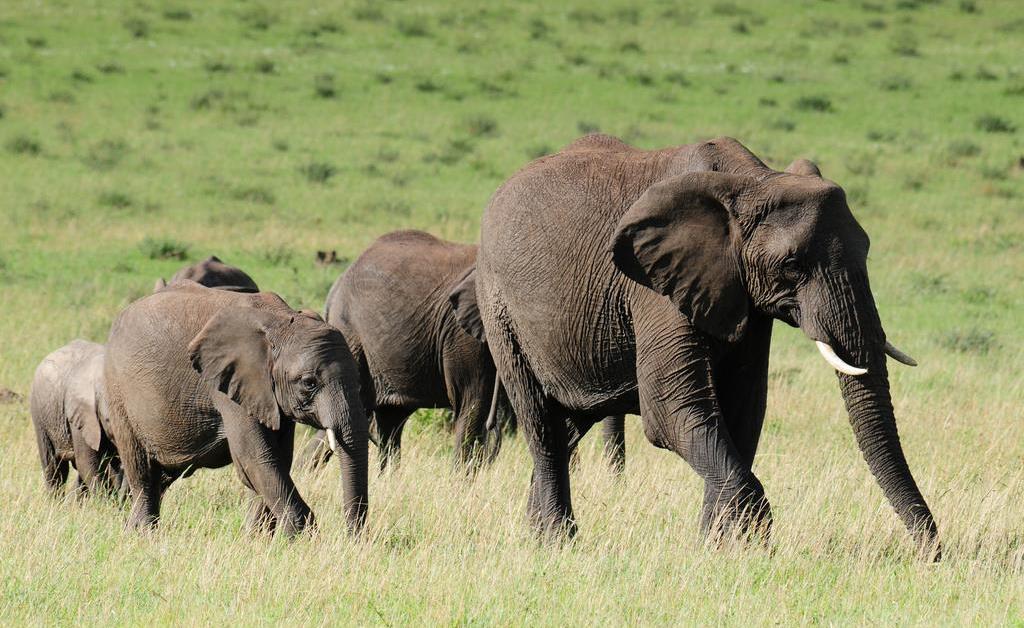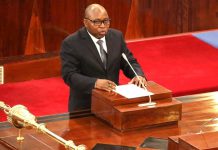TANZANIA has made huge strides in antipoaching war with statistics showing a 90 per cent reduction of elephant poaching.
As a result, the number of elephants has steadily gone up in the recent years, reaching over 40,000, Vice-President Samia Suluhu Hassan stated yesterday.
The vice-president attributed the gains made to government’s deliberate efforts, including tightening the noose on poachers. Deterrent sentences and penalties combined with other suitable measures have helped in controlling poaching incidents which had contributed to the significant nose-diving of the elephant population.
The Vice was speaking in Mara region yesterday when presiding over the 60th Anniversary of the Tanzania National Parks Authority (TANAPA) and Ngorongoro Conservation Area Authority (NCAA).
Ms Hassan said the country was heavily impacted by poaching between 1970s and 1980s when the number of elephants dropped from 300,000 to 55,000.
The government eventually implemented a number of measures to fight poaching, as well as adopt other national and international strategies to address the problem, noted the vice-president, adding it made the population of the elephants rise to 141,000 in 2006.
However the devil struck back as the country started to witness a deadly wave of poaching in the late 2000s. The number of elephants fell to only 35,000 in 2014, ringing the alarm bells to the government.
In response to the crisis, the fifth phase government took bold steps to curb poaching, particularly of the endangered elephants.
“Today, we dare to announce to the public and the international community that Tanzania, we have succeeded to control elephants poaching by over 90 per cent,” she stated.
Meanwhile, the vice-president reaffirmed government’s stance on people encroaching lands allocated for conservation purpose, saying; “we will not tolerate them”.
She appealed to Tanzanians residing near the reserved areas to cooperate with responsible institutions for conserving national resources.
“We don’t expect citizens to intrude into conserved areas and a political leader comes and rallies behind them… all citizens must adhere to conservation laws and guidelines,” stressed Ms Hassan.
She said the two institutions, at their 60, have achieved a milestone in preserving the wildlife, with 35 per cent of the country’s lands allocated as conservation area.
“These reserved lands are beneficial not only for conservation but also for protecting the environment and carrying out research,” Ms Hassan explained.
The Conservation in Tanzania started way back since colonialism, but after independence the country declared to the world its determination to preserve wild animals sustainably.
“We will do whatever we can to ensure that the next generations also enjoy the wealth of natural resources in their country,” she vowed.
After independence, many changes have been made in laws and regulations guiding the conservation. Under the current government, a number of amendments have been adopted to enable the communities participate in preserving natural resources, including wild animals.
Now there are laws and guidelines that make communities from grassroots level engage in conservation. Efforts were also made to introduce new national parks.
Currently, the country has a total of 22 national parks from three in 1961. Six out of total 22 national parks have been established during four years of President Magufuli.
“As we mark 60 years of the two institutions, it is good to assess ourselves over achievements and come up with short and long-term strategies to improve conservation activities,” noted the VP.
She advised that the strategies should focus on changes that the sector has gone through as well as increase of population near reserved areas. “In order to start another journey of 60 years, we need to have clear strategies and a path to follow for attaining big goals of conservation that are in line with 21st century of science and technology and Sustainable Development Goals (SDGs),” she told the authorities.
Speaking earlier, Natural Resources and Tourism Minister Dr Hamisi Kigwangalla highlighted on the role of tourism sector to the country’s economy.
The sector contributes 17.6 per cent of the national income and while earning 25 per cent of the foreign currencies.
Dr Kigwangalla argued that the ongoing efforts to revive the state airline (ATCL) will see the tourism sector flourish more, projecting that the number of visiting tourists will reach 2 million come 2020 up from current number of 1.5 million.
Foreign Affairs and East African Cooperation Minister, Prof Palamagamba Kabudi promised that his docket would continue preaching tourism diplomacy as part of economic diplomacy.







